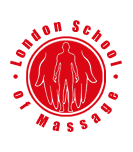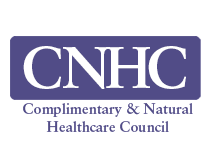ADDRESS
15 Crescent Road,
Heybridge, Essex , CM9 4SJ
PHONE
First Time Getting a Massage?
First off. Can you have one at all?
There are only a handful of scenarios whereby I wouldn't be able to massage you (total contraindications). If you have a fever or contageous disease of any kind, if you are vomitting or you have diarrhoea or lastly if you are intoxicated.
Other than that you should be ok to get a massage however...
There are a number of contraindications that require a doctor's approval before you get massaged. They are:
- Cancer
- Epilepsy
- Diabetes
- Osteoporosis
- Asthma or bronchitis
- Nervous or psychotic conditions
- Cardiovascular conditions such as thrombosis, high or low blood pressure and heart conditions
- Recent operations
- Acute rheumatism or arthritis
- Bell's palsy
- Trapped, pinched or inflamed nerves
- Gynaecological infections
- Prescribed medication
- Neurological conditions such as Multiple sclerosis, Parkinson's disease and motor neurone disease
- Postural deformities
- Cervical spondylitis
- Whiplash
- Pregnancy
If you are pregnant or have any of the above conditions you will need to speak to your doctor to ensure it's ok for you to recieve massage before making an appointment
Lastly, we have the local contraindications. If you have any of these then we'll simply need to avoid the affected area, you can still have a massage if you want one though.
- Skin diseases
- Undiagnosed lumps or bumps
- Varicose veins
- Abdomen during pregnancy (after medical permission obtained)
- Cuts, bruises and abrasions
- Sunburn
- Area of undiagnosed pain
- Inflammation
- Scar tissue (2 years after a major or six months after a minor operation)
- Abdomen during the first few days of menstruation depending on how you feel
- Hormonal implants
- Abdomen after a heavy meal
That's it, that's all of the contraindications to massage. They're all covered on the initial consulation form anyway.
If you have any of the medical conditions on the form you will need to speak to your doctor to ensure it's ok for you to receive massage therapy before I can treat you.
Of course feel free to print it and fill it out ahead of time to bring with you if you wish.
Next up. What can you expect after your massage?
Let's cover the contra-actions first, these are the (perhaps) seemingly negative possible after-effects of the massage. They are a perfectly normal part of the 'healing crisis' the body goes through after massage so if you do experience any of them please don't be alarmed.
- Thirstiness or dry mouth
- Erythema (slight reddning of the skin as a result of surface stimulation)
- Tiredness
- Light-headedness
- Muscular aches, cramps, soreness or pain particularly after deep tissue work has been undertaken
- Light bruising
- Frequent urination
- Flatulence
- Increased defecation
- Spots
- Heightened emotions
- Sleep pattern changes
- Cold-like symptoms
- Nausea
Again, all of these are related to the body healing and purging itself of toxins. They are entirely normal reactions to the work done and nothing to worry about.
Now onto the good stuff. Here's all the great things your massage can do for you.
- Relief from muscular tightness, tension and pain
- Improved posture
- Better muscle tone
- Improved mobility, flexibility and range of motion in joints
- Delivery of vital nutrients to tissues owing to stimulation of arterial blood flow
- Elimination of toxins and waste products owing to stimulation of venous blood and lymphatic flows
- Better digestion owing to stimulation of the parasympathetic nervous system
- Improved sleep duration and quality
- Relief from headaches
- Helps restore the endocrine system to homeostatis
- Healthier skin
- Relief from stress and anxiety
Lastly, some aftercare measures
Here's what you should do after your treatment to ensure you reap maximum possible benefit from the massage.
- No alcohol for at least 24 hours. Alcohol is a powerful toxin and your body will prioritise eliminating it over all the other built up toxins and waste products we just released
- Drink plenty of water to assist the body in removal of toxins via urination and perspiration
- Nourish your body, give it what it needs. Try to eat healthily in the days following your treatment
- Relax, or better yet sleep. Your body does all it's best work while you're at rest
- Try to take some light exercise focussing on mobility work and stretches
Hopefully that covers most of what you need to know as a new client. There's some more great information over on the frequently asked questions page or if you still can't find the answers you're looking for please just go ahead and get in touch and I'll be happy to help.



